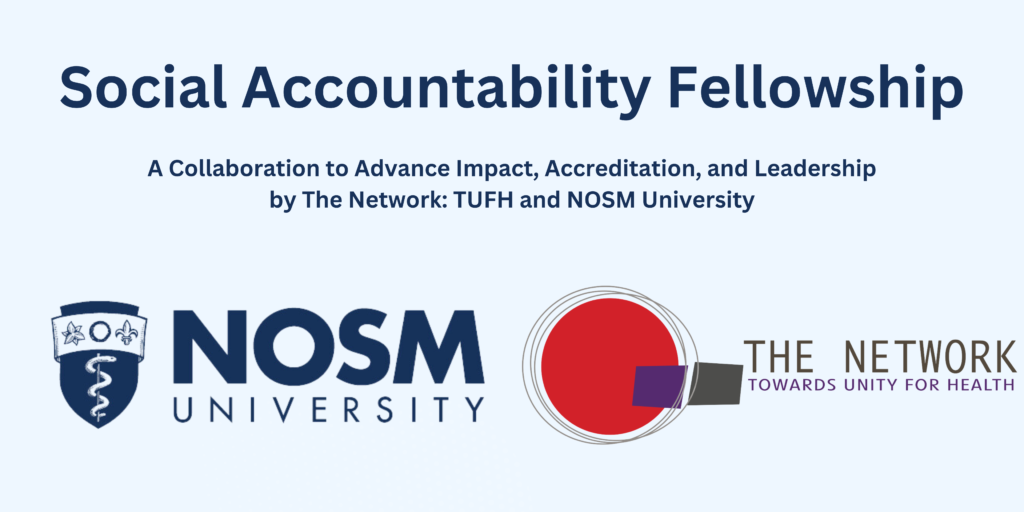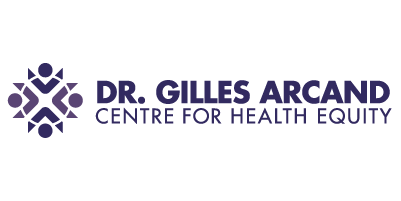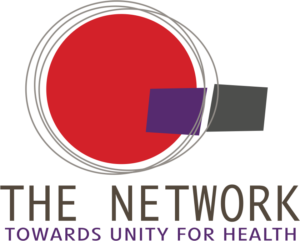
Faculty and Content Experts from
THEnet
Social Mission Alliance
Social Innovations in Health Initiative
Penn Social Policy, Fels Institute of Government, and Nursing
What’s the goal?
Overview:
TUFH is investing in the capacity of regions and countries through its Centers of Excellence program to achieve its vision for local adoption and implementation on Social Accountability, Interprofessional Education and Collaborative Care, and Health Workers Competency Standards.
TUFH Social Accountability Fellowship is part of that strategy. The purpose of the 2026 Social Accountability Fellowship is to explore the establishment of a TUFH National Center of Excellence within a country or region. TUFH Centers of Excellence (CEs) are parts of institutions such as universities and health institutions focused on health. CEs are an extension of TUFH in specified technical areas according to agreed upon Terms of Reference and a work plan. CEs support research, provide input to inform the development of guidance on TUFH technical areas of expertise.
CEs lead their respective country and region (when applicable) to 1) become more Social Accountability which is defined as being responsive to people and society’s needs; 2) adopt Interprofessional Education and Collaborative Care practices and standards; and 3) improve the knowledge and competencies of the Healthcare Workforce serving vulnerable and marginalized communities including, but not limited to, Remote and Rural; Migrants, Refugees, and People seeking Asylum; Women; Elderly; Indigenous/Tribal; and Complex Care (Intellectual and Developmentally Delayed and Autism).
Social Accountability Fellows and Teams will receive support in the following areas:
- Leadership Skills Enhancement: Strengthening leadership skills and competencies for establishing a national/regional center of excellence, which includes:
a) Strategy development of a national leadership council;
b) Adoption and implementation of social accountability and interprofessional education and collaborative care principles and standards within across country health faculties institutions; and
c) Coordination of global courses to increase the knowledge and skills to better serve vulnerable and marginalized communities. - Advocacy and Policy Leadership: Enhancing advocacy and policy leadership competencies in partnership and collaboration with government and other authorities representing the country collective interests.
- Guidelines and Training: Adoption and implementation of global courses aimed at enhancing knowledge and skills to more effectively serve specific populations, including but not limited to Remote and Rural; Migrants, Refugees, and People seeking Asylum; Women; Elderly; Indigenous/Tribal; and Complex Care (Intellectual and Developmentally Delayed and Autism).
Applicants from the following countries and regions will be prioritized as they meet a geographic gap.
- Latin America (Colombia, Peru, Chile, Ecuador, and Caribbean)
- EMRO (Pakistan and Saudi Arabia)
- Europe (United Kingdom, Eastern Europe, Western Europe, and Scandinavia)
- Western Pacific (Japan, Australia, and New Zealand)
- SE Asia (China, Thailand, Cambodia, and Vietnam)
- Africa (Liberia, Algeria, Morocco, Ethiopia, Kenya, and Somalia)
Applicants from the following countries will be connected to an existing TUFH Center of Excellence:
- North America: Canada, United States
- Latin America: Mexico, Brazil, and Argentina
- EMRO: Egypt, Sudan, Turkey, UAE, Oman, and Yemen
- Africa: Nigeria, South Africa, Congo, and Zambia
- SE Asia: India, Malaysia, Myanmar, and Nepal
- Western Pacific: Philippines and Indonesia
Application Requirements
- Identification of a leader (Social Accountability Fellow) and team of 2+ leaders who would potentially establish and lead a national center of excellence.
- Institutional letter of interest/endorsement to establish a national collaborating center of excellence.
- CV of lead applicant.
Applicants and team members should have roles in some form of institutional leadership, and they should be able to provide the selection committee with a letter of agreement detailing their institutional and team-based intent to create an action plan for implementing a TUFH Chapter in their contexts. The identified Fellowship Lead should submit an application on behalf of their team and institution and enter all questions related to the applicant below.
Timelines
- Applications for this fellowship launch on October 6th, 2025
- Submission deadline is October 31st, 2025
- Selection results will be announced on November 14th 2025.
The Social Accountability Fellowship begins in December 2025 and concludes in July 2026, with 1 fellowship session per month, being held on the second Tuesday of each month at UTC: 2:00-4:00 PM.
Financial Support
Successful applicants will receive a stipend of $1000.00 USD, which can be:
- paid out directly to your institution;
- be used to fund registration for the 2026 TUFH Annual Conference or the International Conference on Academic Medicine (ICAM) conferences; or
- institutional TUFH membership.
Stipends will only be paid at the conclusion of the fellowship, provided that at least one representative of the team has attended all fellowship sessions and successfully completed deliverables related to the fellowship.
Fellowship Expectations
Upon completion of the fellowship each team is expected to present their action plan (i.e becoming socially accountable; health innovation; and/or policy strategy) to an international audience and publish an article in the Social Innovations Journal.
Applications were closed on October 31st, 2025
If you have any questions please contact Nikolaj Hansen-Turton, TUFH at secretariat@thenetworktufh.org



